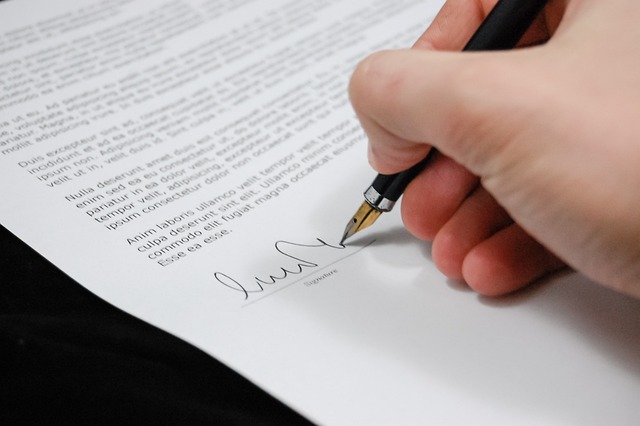When multinational companies engage in shareholder agreements within the UK's legal framework, it is essential to have these documents accurately and legally compliantly translated into the languages of all parties involved. The precision of such translations can significantly impact the clarity of rights and obligations and prevent potential legal disputes or compliance issues. Specialized Shareholder Agreements UK translation services are vital in this process, as they provide expert linguists with backgrounds in corporate law who can ensure that the financial and legal terminology is accurately conveyed. These services offer a comprehensive solution that includes using advanced translation memory software, specialized glossaries, and a rigorous two-step translation process for the highest level of accuracy, thereby safeguarding the integrity of international business partnerships and protecting the rights of all stakeholders. The importance of this is underscored by the potential consequences of inaccurate translations, which can lead to misunderstandings, litigation, and other legal complications.
navigating the complexities of international business requires meticulous attention to legal documentation, particularly when it comes to shareholder agreements. In the UK, where such contracts are binding and intricate, ensuring their translated versions accurately reflect the original text is paramount. This article delves into the essentials of accurate translation for shareholder agreements within the UK context, emphasizing the critical role of professional translation services in this process. We will explore the key components that must be translated to maintain compliance with UK law, common pitfalls to avoid, and best practices for cross-language translations. By understanding the legal considerations and implications of inaccurate translations, businesses can mitigate risks and ensure their multilingual shareholder agreements are both legally sound and culturally nuanced. This exploration will also highlight the importance of technology in precise translation and the steps to take post-translation to confirm accuracy and compliance.
- Understanding the Importance of Accurate Translation for Shareholder Agreements in the UK
- Overview of Shareholder Agreement Essentials in the UK Context
- The Role of Professional Translation Services in Legal Documents
- Identifying Key Components of Shareholder Contracts to Translate
- Common Pitfalls in Translating Legal Documents and How to Avoid Them
- Best Practices for Translating Shareholder Agreements Across Languages
- Legal Considerations and Implications of Inaccurate Translations
- Choosing the Right Translation Services for Shareholder Agreements UK
- Ensuring Compliance with UK Law in Translated Shareholder Contracts
- Case Studies: The Impact of Professional vs. Amateur Translations on Shareholder Agreements
Understanding the Importance of Accurate Translation for Shareholder Agreements in the UK

When multinational companies or those with international shareholders operate in the UK, it is imperative to ensure that shareholder agreements are accurately translated. The legal landscape of the UK, with its specific corporate governance and shareholder rights regulations, necessitates precise translation services for shareholder agreements. Inaccurate translations can lead to misunderstandings, legal disputes, and potential financial repercussions. Utilising professional UK translation services that specialise in legal documentation is essential to convey the nuances and complexities inherent in shareholder agreements. These experts are well-versed in the language as well as the local laws and regulations that govern such contracts, ensuring clarity, compliance, and protection for all parties involved. Engaging such services mitigates risks and fosters trust among stakeholders by guaranteeing that the terms of the agreement are accurately represented across languages, thereby upholding the integrity of the agreements and safeguarding the interests of the shareholders.
Overview of Shareholder Agreement Essentials in the UK Context

In the United Kingdom, a shareholder agreement outlines the terms and conditions that govern the relationship between the company and its shareholders. This agreement is a critical component of a company’s structure, delineating shareholder rights, responsibilities, and expectations. It serves as a framework for decision-making processes, including major corporate decisions, and often includes mechanisms for resolving disputes among shareholders. The UK context mandates clarity and precision in these agreements to ensure legal enforceability and the protection of all parties’ interests. When translating shareholder agreements from English into other languages or vice versa, it is imperative to engage professional translation services specialising in shareholder agreements in the UK context. These services ensure that the nuances of company law are accurately conveyed across language barriers. The precision required in such translations is not just a matter of linguistic accuracy but also of legal compliance and operational efficiency. For instance, terms like ‘drag-along’ and ‘tag-along’ rights, shareholder exit strategies, and anti-dilution provisions must be translated with a deep understanding of their implications within the UK’s regulatory framework. Utilising expert translation services for shareholder agreements UK ensures that all stakeholders have a comprehensive and legally sound understanding of their rights and obligations as per the original agreement, maintaining the integrity of the contract in its translated form.
The Role of Professional Translation Services in Legal Documents

Navigating the complexities of shareholder agreements within the UK requires meticulous attention to detail, particularly when such documents need to be translated. Professional translation services play a pivotal role in this context, offering precise and accurate translations that stand up to legal scrutiny. These specialized services ensure that the nuances and stipulations contained within shareholder agreements are accurately conveyed in the target language, thus maintaining the integrity of the original text. The expertise of these professionals is crucial when dealing with the intricate legal terminology often found in UK shareholder contracts, which can be particularly challenging for non-native speakers or generalist translators. By leveraging the skills of seasoned legal translators, businesses and individuals can confidently comply with all regulatory requirements, ensuring that their translated agreements are legally binding and reflective of the original intent. This not only facilitates clear communication among shareholders from different linguistic backgrounds but also safeguards the interests of all parties involved, thereby upholding the legal standards necessary within the UK corporate sector.
Identifying Key Components of Shareholder Contracts to Translate

When undertaking the translation of shareholder agreements in the UK, it is imperative to meticulously identify and accurately convey all key components of the contracts. These documents often contain nuanced legal terms and clauses that are critical to the rights and obligations of the parties involved. Shareholder Agreements UK translation services must focus on translating not only the literal text but also the underlying intent to ensure that the translated agreements maintain their legal integrity. The translation should be precise, capturing the exact meaning of provisions related to share ownership, voting rights, governance structure, and dispute resolution mechanisms. Additionally, the translation service should consider the cultural context to avoid any misunderstandings arising from idiomatic expressions or legal jargon specific to UK law. By ensuring that all pertinent details are transliterally represented, these services play a vital role in facilitating clear communication among international stakeholders and safeguarding the interests of shareholders across different linguistic and cultural boundaries. In doing so, they uphold the legal framework within which these agreements operate, thereby promoting trust and compliance across multinational enterprises.
Common Pitfalls in Translating Legal Documents and How to Avoid Them

Translating shareholder agreements in the UK presents unique challenges that can significantly impact the legality and enforceability of the contracts. Common pitfalls in this process include cultural nuances, idiomatic expressions, and legal terminology that may not have a direct equivalent in the target language. To navigate these challenges effectively, it is imperative to engage with specialized shareholder agreements UK translation services that employ expert linguists well-versed in both legal and business contexts. These professionals are trained to recognize and appropriately handle complex concepts and technical terms, ensuring that the translated document conveys the exact same meaning as the original. They also adhere to industry standards and ethical guidelines set by professional bodies, which further ensures accuracy and compliance. Utilizing translation memory software can also streamline the process, maintaining consistency across translations of similar clauses or terms. By choosing a reliable service provider with a proven track record in legal translations, businesses can mitigate risks associated with misunderstandings or misinterpretations that may arise from poorly translated shareholder agreements. This due diligence is crucial for safeguarding the interests of all parties involved and for maintaining the integrity of legal commitments across different linguistic and cultural boundaries.
Best Practices for Translating Shareholder Agreements Across Languages

When translating shareholder agreements, accuracy and legal precision are paramount to ensure that all parties involved have a clear understanding of their rights and obligations. Given the complexity of financial instruments and the legal nuances inherent in shareholder agreements, it is crucial to engage with professional UK translation services that specialize in legal documentation. These experts bring a keen eye for detail and an intimate knowledge of both source and target languages, ensuring that translations are not only linguistically correct but also reflect the original text’s intent and implications.
To maintain the integrity of shareholder agreements across different languages, it is essential to adopt best practices in translation. This involves selecting translators with expertise in corporate law and a track record of working with financial documents. Moreover, employing a two-step process where the initial translation is reviewed and validated by another linguist or legal expert can significantly reduce the risk of errors that might affect the interpretation of contract terms. Utilizing state-of-the-art translation memory software and leveraging glossaries tailored to financial and legal terminology further enhances the quality of the translations, ensuring consistency and accuracy in all language versions of the shareholder agreements. This meticulous approach not only upholds compliance but also fosters trust and clarity among stakeholders from different linguistic backgrounds.
Legal Considerations and Implications of Inaccurate Translations

When shareholder agreements are translated for stakeholders operating within different linguistic regions, particularly in the UK, legal precision is paramount. The translation must accurately convey the stipulations and obligations set forth in the original document to maintain the integrity of the agreement. Inaccurate translations can lead to misinterpretations and disputes, potentially resulting in costly litigation. The implications of such errors are significant, as they may compromise the legal standing of the shareholder agreements, leading to confusion over ownership rights, financial entitlements, and governance frameworks. Utilizing professional UK translation services ensures that all nuances of the source material are captured and that the translated document holds the same legal weight as its original counterpart. This is crucial in maintaining compliance with regulatory standards and protecting the interests of all parties involved, thereby safeguarding the company’s operations and the rights of its shareholders. The role of these translation services extends beyond mere linguistic transfer; it encompasses a commitment to legal accuracy and clarity that is essential for the functioning of international business partnerships and the prevention of future legal complications.
Choosing the Right Translation Services for Shareholder Agreements UK

When multinational companies or those with international stakeholders operate in the UK, it is imperative to ensure that shareholder agreements are transparent and legally enforceable across all parties involved, regardless of their location. This necessitates expert translation services for Shareholder Agreements UK that can provide accurate translations to bridge language barriers. The right translation service should not only be proficient in the relevant languages but also well-versed in legal terminology specific to shareholder agreements. This dual expertise ensures that all terms, conditions, and obligations outlined in the original agreement are accurately conveyed in the target language.
Selecting a translation service for Shareholder Agreements UK is a critical decision that should not be taken lightly. Businesses must look for providers with a proven track record in legal translations to guarantee the highest level of precision and confidentiality. These providers typically offer certified translations, which are essential for official use, and they often have a network of professional legal translators who specialize in corporate law matters. Additionally, a reputable translation service will provide support throughout the process, from initial consultations to post-translation reviews, ensuring that the translated agreements align with the UK’s Companies Act 2006 and other relevant legislation. This meticulous approach ensures that all shareholder agreements are compliant and legally sound, facilitating smooth operations and clear communication among shareholders from different linguistic backgrounds.
Ensuring Compliance with UK Law in Translated Shareholder Contracts

When businesses operate across different jurisdictions, it is imperative to ensure that shareholder agreements are not only accurately translated but also comply with the host country’s laws. In the UK, where legal frameworks are robust and specific, translation services must be of the highest calibre to guarantee both linguistic precision and legal accuracy. Shareholder Agreements UK translation services play a critical role in this process by providing translations that reflect the exact stipulations of the original documents while aligning with UK legislation. This is particularly crucial when shareholder contracts are initially drafted under different legal systems, where terms and conditions may differ significantly from those recognised in the UK. Translators specialising in legal documents must be well-versed in both the source and target legal environments to navigate the nuances of language and law effectively. The implications of misinterpretation or non-compliance can be severe, leading to disputes, financial penalties, or even litigation. Thus, it is essential for businesses to engage with professional Shareholder Agreements UK translation services that are adept at providing legally vetted translations, ensuring that all parties involved have a clear and enforceable understanding of their rights and obligations as outlined in the translated agreements.
Case Studies: The Impact of Professional vs. Amateur Translations on Shareholder Agreements

When shareholder agreements are translated across different languages, the accuracy and nuance of those translations can significantly impact the rights and obligations of all parties involved. In the UK, professional translation services play a pivotal role in ensuring that shareholder agreements are accurately conveyed in multiple languages. A case study involving two multinational companies exemplifies this point. The first company opted for amateur translations for their shareholder agreements, relying on bilingual employees to translate key documents. This led to misunderstandings and discrepancies that later resulted in costly litigation. On the other hand, the second company employed UK translation services specializing in legal documents to handle their translations. The professional translations were precise and clear, reflecting the intentions of the original agreement without ambiguity. This allowed for seamless cross-border operations and facilitated a mutually beneficial relationship between shareholders from different countries. The case studies underscore the importance of engaging professional UK translation services for shareholder agreements to mitigate risks and ensure legal compliance across diverse linguistic contexts.
In concluding, the meticulous translation of shareholder agreements within the UK is not merely a matter of linguistic precision but a critical legal and business imperative. The intricate nature of these contracts necessitates specialist Shareholder Agreements UK translation services to navigate the complexities and ensure that all parties involved are afforded the same rights and protections, regardless of language barriers. By adhering to the best practices outlined, companies can mitigate risks associated with misinterpretations or omissions due to inaccurate translations, thereby upholding compliance with UK law. This article has underscored the pivotal role of professional translation services in this domain and provided a comprehensive framework for entities operating across linguistic and cultural boundaries to consider. It is imperative for businesses to engage with experienced translators who specialise in legal documentation to ensure that shareholder agreements are accurately translated, facilitating informed decision-making and safeguarding the interests of all stakeholders.



